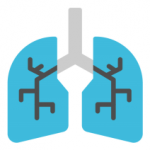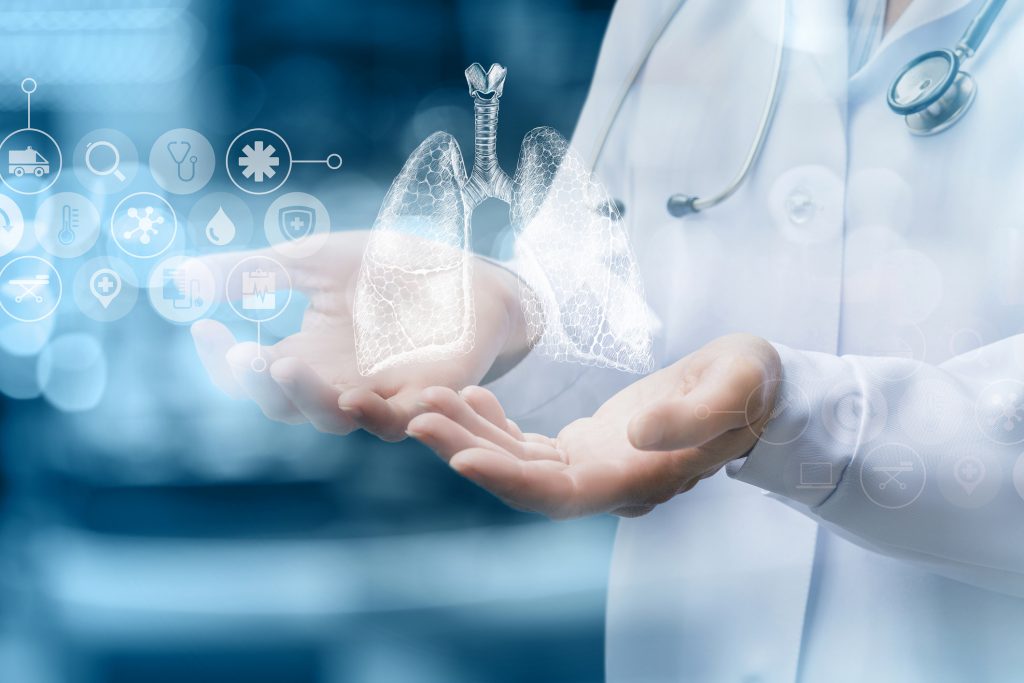Pulmonary Hypertension

According to the World Health Organization (WHO), pulmonary hypertension (PH) is a chronic and progressive disease characterized by an increase in blood pressure in the pulmonary arteries that carry blood from the heart to the lungs. The increased pressure makes it harder for the heart to work, causing heart problems.
Pulmonary hypertension is a complex vascular disease for which the range of treatments is limited; mortality and morbidity in affected patients remain high. It is therefore necessary to acquire a good understanding of the mechanisms responsible for the pathogenesis of this disease in order to be able to offer patients a better range of treatments.

Pulmonary hypertension (PH) is defined as an average pulmonary arterial pressure (PAP) of more than 20 mm Hg at rest. Pulmonary arterial hypertension (PAH) also requires a pulmonary artery occlusion pressure (PAPO) of less than 15 mm Hg and a pulmonary vascular resistance (PVR) of more than 240 dyne.sec / cm-5 (3 Woods units). These pressures are measured by cardiac catheterization.
When PAH occurs on its own without a known cause, it is called idiopathic PAH. However, it is more commonly associated with other diseases such as connective tissue diseases, HIV infections, portal hypertension and hemoglobinopathies. Little is known about the pathogenesis of PH, but since many of its forms present similar histology, it is possible that they are linked by common pathophysiological mechanisms.

The aim of our Research Group is to identify these mechanisms and to develop new therapeutic approaches to combat PAH.
The Group’s clinical trials are therefore focused on the outcome of the disease, its treatment and its prognosis.
Basic and translational research projects focus on the use of molecular resources and biomarkers to identify new molecules for further investigation.

The group's mission
To improve the quality of life of patients with pulmonary hypertension by providing them with the best available care combined with innovative research.
The Group is currently the reference for fundamental, translational and clinical research in pulmonary hypertension in Canada. The cutting-edge techniques available as well as the numerous international collaborations offer an exceptional universe for training and research.
More specifically, the Group’s mission is to elucidate the pathogenesis of the disease, to identify the molecular mechanisms involved and to develop new therapeutic approaches.
Innovative research
a passionate research team that is becoming the reference for
fundamental, translational and clinical research in pulmonary hypertension
Principal investigators, co-investigators, research coordinators and national and international collaborators
Current post-doctoral, doctoral or master's students and alumni
Ongoing clinical trials in pulmonary hypertension or fibrosis
Publications by our principal investigators and students since the creation of the group
Research topics treated in our center
- Epigenetic alterations (methylation, acetylation, non-coding RNA, etc.) in the pathogenesis of pulmonary arterial hypertension
- Mechanisms of adaptation to stress in pulmonary arterial hypertension
- Bioenergetic remodeling in pulmonary arterial hypertension
- The physiology of exercise in patients with pulmonary arterial hypertension
- Peripheral angiogenesis defects in pulmonary arterial hypertension
- Mechanisms responsible for pulmonary hypertension secondary to idiopathic pulmonary fibrosis
- The mechanisms responsible for pulmonary hypertension secondary to a pathology of the left heart





